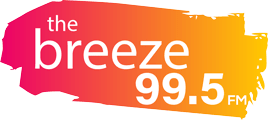(NEW YORK) — The banking crisis that erupted earlier this month elicited some predictions of a halt in interest rate hikes, since previous borrowing cost increases garnered blame for the financial distress.
Instead, the Federal Reserve on Wednesday imposed another hike, extending a yearlong blitz of rate increases that risks further banking woes and squeezes a different group: consumers in need of a loan.
The supercharged rate hikes have ballooned loan costs for mortgages, car loans and credit cards, weighing on the budgets of U.S. households or forcing them to delay buying big-ticket items.
However, some loan costs have ticked down slightly since the onset of the banking crisis in response to renewed recession fears, suggesting that relief for borrowers could arrive in the coming months but alongside a possible economic downturn, experts told ABC News.
“For ordinary families who need a new car or need to move, when the Fed hits the brakes hard and loan rates go up, that really constrains them,” Andrew Levin, an economics professor at Dartmouth College and a former Federal Reserve Board special adviser, told ABC News.
The Fed has put forward a string of borrowing cost increases as it tries to slash inflation by slowing the economy and choking off demand. That means borrowers face higher costs for everything from car loans to credit card debt to mortgages.
The average 30-year fixed-rate mortgage rate stands at 6.6%, a sharp increase from a year ago, when it registered at 4.6%, a Bankrate analysis found.
Each single percentage point increase in a mortgage rate can add thousands or tens of thousands in additional cost each year, depending on the price of a house, according to Rocket Mortgage.
Consumers tempted to offload heightened costs onto a credit card have encountered skyrocketing rate increases for that debt, too.
The average credit card interest rate offered in the U.S. over the last three months of 2022 stood at 21.6%, according to WalletHub, a jump from 18.2% a year prior.
“Higher interest rates mean you really can’t spend as much on big-ticket items,” Derek Horstmeyer, a finance professor at George Mason University’s School of Business, told ABC News. “There’s a direct connection.”
To be sure, the Fed has raised interest rates as part of an assault on sky-high inflation, a separate source of financial angst for U.S. households.
Inflation has fallen significantly from a summer peak, though it remains more than triple the Fed’s target of 2%.
“When you raise rates a lot it can feel like slamming the brakes and be pretty uncomfortable for passengers,” Levin said.
“On the other hand, families have been hit really hard in recent years by high inflation,” he added. “Passengers don’t want to go down a mountain at high speed either.”
While loan costs remain well above where they stood a year ago, the recent banking crisis has delivered a burst of unexpected relief, experts said.
Mortgage rates inched downward for the second week in a row, according to data released by Freddie Mac on Thursday.
The fall in mortgage rates owes to a quirk in the relationship between interest rates and home loan costs.
Mortgage rates track closely with rates for 10-year treasury bonds, which themselves correlate with expectations for the Fed’s benchmark interest rate over the next few years, Levin said.
If investors think interest rates will soon reverse downward, a drop in mortgage rates often precedes the interest rate pivot.
The financial distress has heightened recession fears, prompting investors to expect a significant lowering of interest rates over the next 12 to 18 months, which in turn has pushed down mortgage rates, Levin said.
“If that expectation continues, then the 10-year treasury rate will drop quite a bit,” Levin said. “Then it pulls down mortgage rates and that improves the affordability of families looking to move or first-time homebuyers looking to buy a house.”
Car loans will likely experience a trajectory similar to that of mortgage rates, though credit card costs should lag behind, Levin said.
“There might be a glimmer of hope,” he added.
Tempering such optimism, however, is the economic force that would push down interest rates: a recession.
“This crisis where we broke a few banks – that’s probably going to push us into a recession,” Horstmeyer said, noting that the adjoining job losses and decline in demand should bring down inflation and allow the Fed to ease interest rates.
“That kind of did the Fed’s job for it,” he added.
Copyright © 2023, ABC Audio. All rights reserved.





